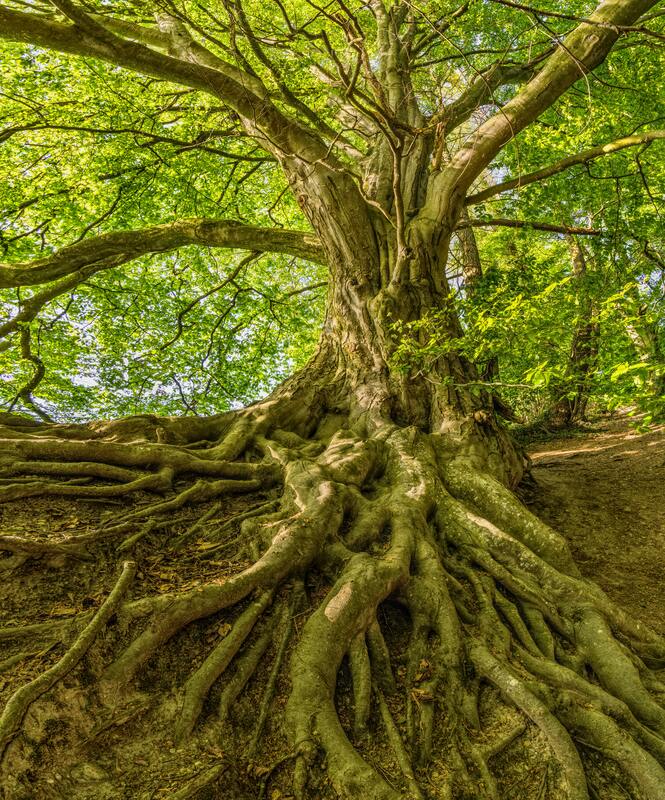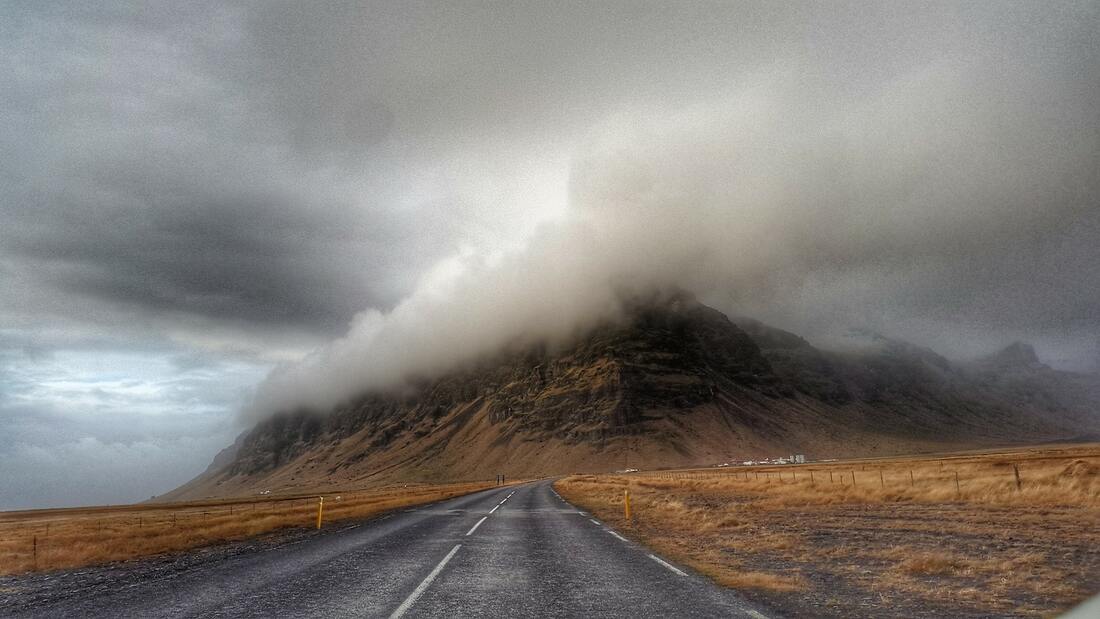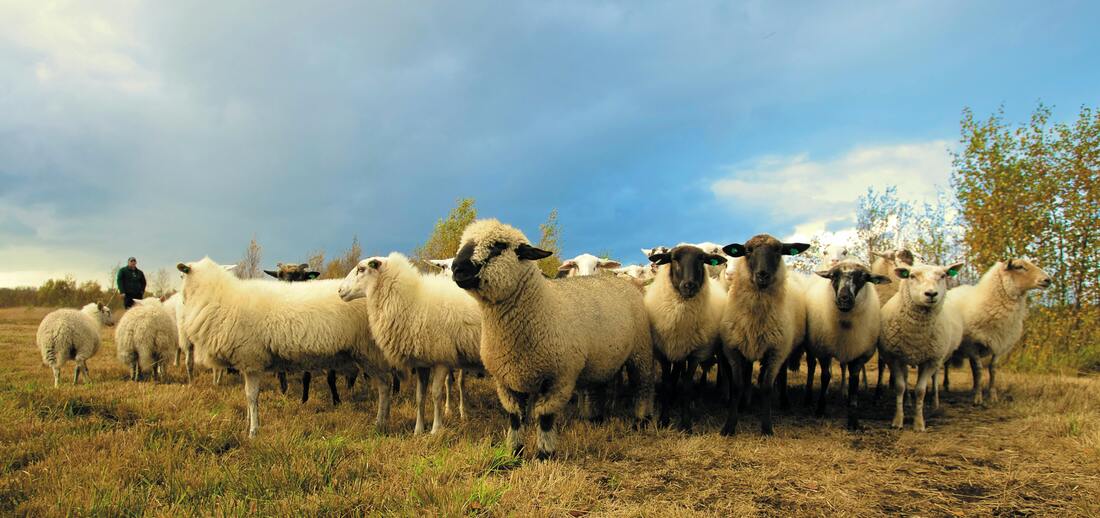|
The eleventh month on the Hebrew calendar, Shevat, started one week ago. Tzadik is the letter in the Hebrew alphabet for this month and symbolizes "The Righteous One." Jeremiah prophesied the coming of the Righteous One in chapter 23 of his book. The chapter is titled "The Righteous Branch." "'I myself will gather the remnant of my flock out of all the countries where I have driven them and will bring them back to their pasture where they will be fruitful and increase in number. I will place shepherds over them who will tend them, and they will no longer be afraid or terrified, nor will any be missing,' declares the Lord. 'The days are coming,' declares the Lord, 'when I will raise up for David a righteous Branch, a King who will reign wisely and do what is just and right in the land. In His days Judah will be saved and Israel will live in safety. This is the name by which He will be called: The Lord Our Righteous Savior.'" (Jeremiah 23:3-6)
This description of our Savior as the Branch is quite interesting to me since on the fifteenth of Shevat the Jews celebrate what they call, "The New Year of the Trees" or "Tu B-Sh'vat." Rabbis used this date to determine the beginning of the agricultural cycle for Biblical tithes of fruit. The most important part of a tree's structure is its root system. The roots feed the branches that produce leaves and fruit. Their job, in addition to anchoring the tree, is to take in water and nutrients that help the branches grow healthy and strong and produce good fruit. That is why the location for a tree is critical. Farmers prepare their soil by adding organic matter to it. They may also look for a planting location near the water so that their trees can be well irrigated. Did you know that in the prophetic realm large, leafy trees represent powerful and prosperous kingdoms? (The Prophets Dictionary, by Paula A. Price, PhD) Chuck Pierce's book, When God Speaks, says that trees also represent people. Kingdoms are made up of people, each one making a contribution to their kingdom. As children of the Kingdom of Light, we must be rooted in fertile soil. Colossians 2:6-7 gives us directions on where to root. "So then, just as you receive Christ Jesus as Lord, continue to live your lives in Him, rooted and built up in Him, strengthened in the faith as you were taught, and overflowing with thankfulness." If we are rooted in Christ then we take in His love and righteousness and are destined to produce good fruit, "...fruit that will last." (John 15:16) We, as children of the Most High God, (El Elyon) are made in the image of the Lord, Our Righteous Savior. Why is righteousness so important? It means we are in right standing with God and conformed to His image. Our righteousness in God comes through faith in Jesus Christ. Our goal is to become like Him. It is available to us as it says in Romans 3:21-22. "But now apart from the law the righteousness of God has been made known, to which the Law and Prophets testify. This righteousness is given through Jesus Christ to all who believe." There is a promise in Mathew 5:6 for those of us who desire to be like our Savior. "Blessed are those who hunger and thirst for righteousness, for they will be filled." Are we firmly anchored in Him? Do we take in all the good He has for us? How productive are we? In this month of Shevat, let us be especially mindful of where we are planted, what we take in, and how we use what our Righteous Lord provides so that we can produce good fruit for the Kingdom of Light. God bless you. In the region of Moriah on Mt. Zion, two significant events took place. This spot, chosen by God, is one where burnt offerings were offered to Him. This type of offering gave off smoke that ascended to heaven. The purpose of the burnt offerings was to make atonement for the people and to present an aroma pleasing to the Lord. (Leviticus 6) Two individuals in the family line of Jesus were told to ascend the mountain for the purpose of giving God burnt offerings. We should note that since the location was on a mountain, one had to go up. Abraham, the Father of our faith, was the first one to ascend the mountain with his son Isaac. He had been instructed to offer his only son as a burnt offering. The Hebrew word for burnt offering used in this Genesis 22 story is "Olah." Rabbi Jonathan Cahn explains, "Olah is the whole offering because it ascends."
Years later, King David found himself in the same place where Abraham had ascended to present God with a burnt offering. David had committed a sin against the Lord by taking a census of his fighting men. A plague was sent to the land of Israel as a punishment for David's sin. Seventy thousand people died until God had mercy on them. David was instructed to "Go up and build an altar to the Lord on the threshing floor of Araunah the Jebusite." (2 Samuel 24:18) "David built an altar to the Lord there and sacrificed burnt offerings and fellowship offerings. Then the Lord answered his prayer on behalf of the land, and the plague on Israel was stopped." (2 Samuel 24:25) 1 Chronicles 22:1 tells us God's intention for this spot. "The house of the Lord God is to be here, and also the altar of burnt offering for Israel." The Jewish people who lived in Israel were required to "go up" to Jerusalem to present their offerings to the Lord at the temple built on this sacred spot. Scripture tells us multiple times that Jesus went up to Jerusalem to the temple. Ultimately, He would go up the mountain to become the very offering that ascended into the heavens. Actually, the entire life of Jesus was an "olah." Jesus did this by offering His life as a sacrifice. He died to His own will and gave Himself completely to Father God, becoming a forerunner for us. In King David's Psalm 24 there is a question that we should pay attention to: "Who may ascend the mountain of the Lord? Who may stand in His holy place?" The Passion Translation says it this way: "Who, then, ascends into the presence of the Lord? And who has the privilege of entering into God's Holy Place?" Here is the answer: "Those who are clean—whose works and ways are pure, whose hearts are true and sealed by the truth, those who never deceive, whose words are sure. They will receive the Lord's blessing and righteousness given by the Savior-God. They will stand before God, for they seek the pleasure of God's face, the God of Jacob." (Psalm 24:4-6 - TPT) Proverbs 30:4 also asks a question: "Who has ascended into heaven and descended?" (NKJV) The Hebrew word for ascended in this verse is "Olah." Jesus was sent to earth as an offering that would ascend into the heavens. He is our model for how to live life on earth—how to be an "Olah." He gave up everything to ascend as a whole offering. He was exalted as He bowed low. We are called to live as Jesus did, dying to the flesh and giving ourselves completely to God. It is the only way to go up!
The author of Psalm 100 wrote in verse 3, "Know that the Lord is God. It is He who made us, and we are His, we are the people, the sheep of His pasture." The psalmist makes our identity clear in reminding us that we are His. Therefore, our lives must reflect our Maker. In addition, we should acknowledge that we belong to Him and that everything we have belongs to Him. It is in our surrender to these truths that we obtain peace and wholeness in our lives. David's Psalm 23 shows us the covenant blessings that God, our Shepherd, gives to us, His sheep, as we have relationship with Him. Recently, Robert Heidler, Pastor of Glory of Zion Ministries, gave a teaching on Psalm 23 and pointed out how the covenant names of God are displayed in each verse. Let us look at the names of God as they apply to Psalm 23. Each name begins with Yahweh, meaning "To Be." However, it is commonly translated "The Lord." Verse 1 (TPT): "The Lord is my best friend and my shepherd." - Yahweh Rohi (The Lord is my Shepherd) The footnotes in The Passion Translation explain that shepherd is taken from the root word "ra'ah," which is also the Hebrew word for "best friend." "I always have more than enough." - Yahweh Jaira (The Lord is my Provider) Shepherd can also be translated "No lack." Verse 2 (NIV): "He makes me lie down in green pastures, He leads me beside quiet waters, He refreshes my soul." - Yahweh Shalom (The Lord my Peace, Provider, Satisfaction) and Yahweh Rapha (The Lord Our Healer) The Lord's abiding presence sets us free from fears and brings quiet, contentment, and satisfaction. Verse 3b (TPT): "He opens before me pathways to God's pleasure and leads me along His footsteps of righteousness so that I can bring honor to His name." Yahweh Tsidkenu (The Lord my Righteousness) The footnote in The Passion Translation enlightens us about the translation of this name. It could say, "He leads me on the circular paths of righteousness." Apparently, it is common for sheep to circle the hillsides of Israel as they climb higher. The shepherd is the one who leads us higher in the path that is set before us. Verse 4 (NIV): "Even though I walk through the darkest valley, I will fear no evil, for You are with me; Your rod and Your staff they comfort me." - Yahweh Shammeh (The Lord is There or Present with Me) The rod speaks of the spoken Word of God and denotes authority. Thus, The Scriptures are God's rod. The staff represents patience and kindness and is symbolic of the Spirit of God. Holy Spirit leads us into all truth. (John 16:13) Verse 5 (NIV): "You prepare a table before me in the presence of my enemies. You anoint my head with oil; my cup overflows." - Yahweh Nissi (The Lord my Banner of Victory) and Yahweh M'Kaddesh (The Lord Makes us Holy) Jesus came that we would have life and have it abundantly. (John 10:10) His Spirit is represented by oil. Our cup overflows with His life and blessings so that we are overcomers. Verse 6 (TPT): "So why should I fear the future. For Your goodness and love pursue me all the days of my life. Then afterward, when my life is through, I'll return to Your glorious presence to be forever with you!" Yahweh Tsuri (The Lord is My Rock) All that we need while living on earth is in the Lord. He made Covenant with us, His sheep, and cares for us in multiple ways. Through submission to our Shepherd, we have assurance of His never-ending love and protection. Not only is He our Maker; He is our Redeemer and the Lover of our Souls. All praise and honor are due His name. After reading Patricia King's book, In The Zone, my entire perspective on our earthly struggles and battles changed. She explains that through Christ's finished work on the cross we can live in a zone that is filled with blessings. Pat calls it "The Blessing Zone." We were created for blessing. Here is an interesting truth that she illuminates: "The enemy of your soul will literally attempt to invade your Blessing Zone. It is only in the realm of time that you will ever encounter such warfare. When your life in this realm is finished and you step into your eternal home, you will never have anything resist your faith, peace, blessings, or love again. When you look at it with that perspective, it makes your struggles and wrestling here on earth special. You only have this one opportunity for the short time you are here to actually know what victory feels like. In heaven there is no resistance and nothing to win."
The Lord does promise us victory in all things. As it says in Isaiah 54:17, "'No weapon forged against you will prevail, and you will refute every tongue that accuses you. This is the heritage of the servants of the Lord, and this is their vindication from me,' declares the Lord." We must remember that "God raised us up with Christ and seated us with Him in the heavenly realms in Christ Jesus in order that in the coming age he might sow the incomparable riches of His grace, expressed in His kindness to us in Christ Jesus.” (Ephesians 2:6-7) Because of the place where we are seated, we battle from a position of victory. The victory of Jesus is our victory! His victory is one over hell, death, and the grave. John wrote about his encounter with the Lord in his vision. He was told, "I am the Living One; I was dead and now look, I am alive for ever and ever! And I hold the keys of death and Hades." (Revelation 1:18) The book of Hebrews quotes Psalm 8 concerning mankind. "What is mankind that you are mindful of them, a son of man that You care for him? You made them a little lower than the angels; You crowned them with glory and honor and put everything under their feet." (Hebrews 2:6-8) The enemy is under our feet and the Lord has ordained victory for us. Patricia gives us some insight into capturing victory. First, we must acknowledge that victory does not always happen in our timetable. Because of this, endurance or perseverance are qualities we must embrace. Hebrews 10:36 says, "You need to persevere so that when you have done the will of God, you will receive what He has promised." Praise and worship of God change the atmosphere and sets the course for victory. The tribe of Judah experienced this under the leadership of Jehoshaphat when surrounded by three enemy armies. There is power in declarations of faith. They change the atmosphere like praise and chase away the enemy. They are both offensive and defensive weapons. Finally, living a righteous life opens the door to the Lord and closes the door to the enemy. On the other hand, sin does the opposite. I hope you are encouraged as I am in knowing that victory is our portion and that the gift of receiving it brings us extraordinary joy and crowns to place at the feet of Jesus when we get to heaven. The tenth month on the Hebrew calendar is named Tevet which is from the Hebrew word "Tov," meaning good. Our New Year falls on the eighth of Tevet and is a time to set a sure course for our futures. We are reminded in the first four verses of Psalm 81 to rejoice because God has given us seasons of joy. "Sing for joy to God our strength; shout aloud to the God of Jacob! Begin the music, strike the timbrel, play the melodious harp and lyre. Sound the ram's horn at the New Moon, and when the moon is full. On the day of our festival, this is a decree for Israel, an ordinance of the God of Jacob."
Rejoicing in our God of salvation is a sure way to embrace hope for the future. That is why God ordained that His children should celebrate each new month and the goodness He will pour upon us. Our days are getting brighter and brighter as the sun rises higher and shines for a longer period of time. This is an ideal time to chart a course of righteousness. Proverbs 4:18 in The Passion Translation says, "But the lovers of God walk on the highway of light, and their way shines brighter and brighter until they bring forth the perfect day." The NIV gives a slight variation on the interpretation of this verse. "The path of the righteousness is like the morning sun, shining ever brighter till the full light of day." Surely, light overcomes darkness. The month of Tevet is associated with the Hebrew letter AYIN which is the picture of an eye. This season is meant for us to open our eyes to let the light in and to follow the bright path. That means keeping our eyes on the Lord so that He can lead us in the right direction for our intended destiny. We cannot pay attention to the noise around us that would lead us down the wrong path. Many voices with self-centered agendas compete for our time and attention. We must evaluate what we are hearing against the Word of God. It is a "sure foundation for our times, a rich store of salvation and wisdom and knowledge; the fear of the Lord is the key to this treasure." (Isaiah 33:6) The New Year is upon us. Let us yield to the Lord and take the path that He ordained. The Passion Translation has a beautiful way of expressing who we are to be in Christ: "We have become His poetry, a re-created people that will fulfill the destiny He has given each of us, for we are joined to Jesus, the Anointed One. Even before we were born, God planned in advance our destiny and the good works we would do to fulfill it!" (Ephesians 2:10) Let us make our good works coincide with the good month of Tevet and chart a course for our futures that glorifies the One who planned our destinies. |
Joan E. MathiasCategories
All
Archives
July 2024
|





 RSS Feed
RSS Feed